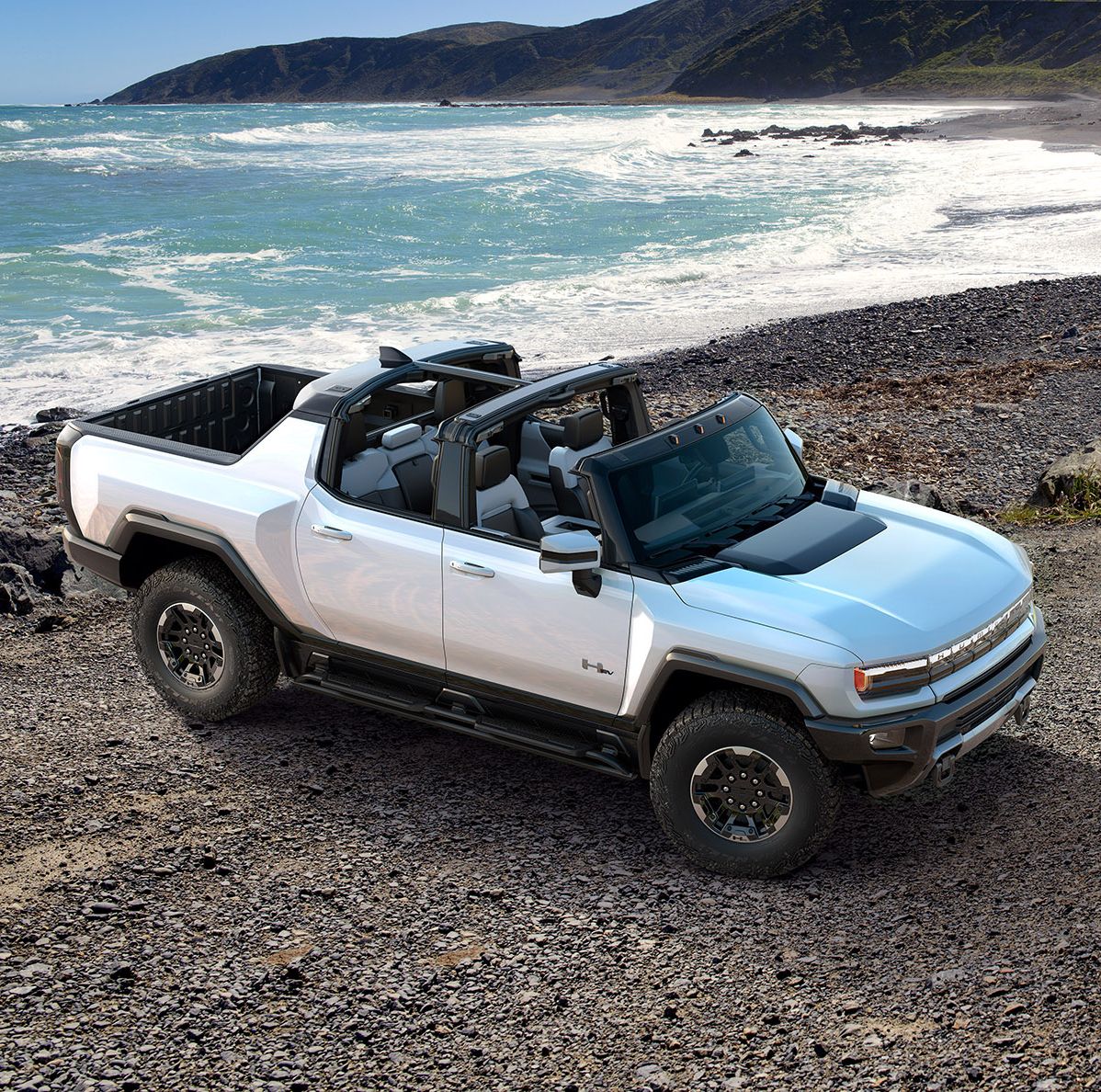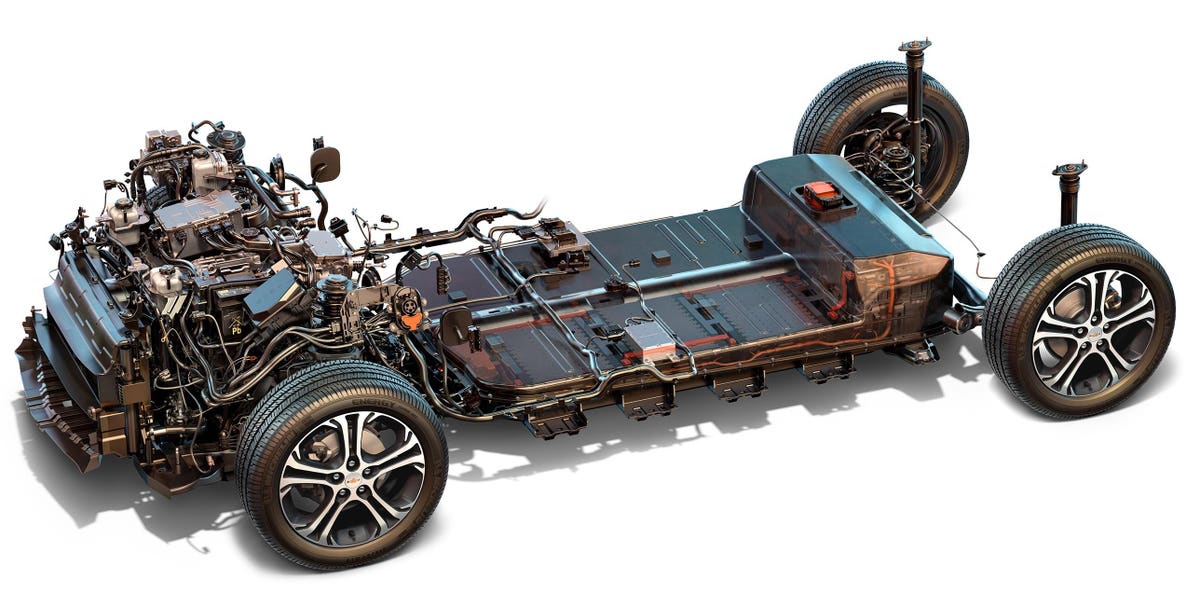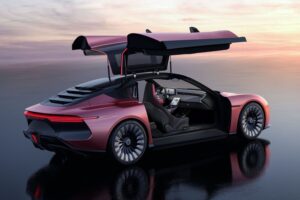Table of Contents

Article-at-a-Glance: Weight Differences Between EVs and Standard Cars
-
Electric vehicles (EVs) typically weigh more than their gasoline counterparts, often by several hundred to a thousand pounds.
-
The primary contributor to the increased weight of EVs is their battery packs, which are significantly heavier than internal combustion engines.
-
Despite their heftier mass, EVs offer benefits such as improved safety features and the potential for enhanced performance.
-
As the automotive industry evolves, new materials and design innovations are emerging to reduce the weight of electric cars.
-
Understanding the implications of an EV’s weight is crucial for infrastructure planning and for consumers making informed purchasing decisions.
How Much Heavier is an Electric Car?
When we talk about electric cars, one of the first things that come to mind is their environmental friendliness. But, as you dive into the details, you’ll notice that these vehicles have a significant difference in weight compared to traditional gasoline cars. On average, an electric car can weigh anywhere from 10% to 20% more than a gasoline-powered car of a similar size. That means if a standard car weighs around 3,000 pounds, its electric counterpart might tip the scales at 3,300 to 3,600 pounds. But why is this important, you ask? Well, the weight of a car impacts everything from safety to performance and even how much pressure it puts on our roads. Let’s explore this further.
Most importantly, the additional weight is due to the electric batteries. These are the heart of an EV, storing all the energy needed to get you from A to B without a drop of gasoline. But these batteries aren’t lightweights; they’re packed with dense materials like lithium, nickel, and cobalt, which add significant heft to the vehicle.
Electric vs. Gasoline: A Side-by-Side Comparison
Consider the popular Tesla Model S and compare it to a mid-size sedan like the Honda Accord. The Tesla, depending on the model, can weigh in at over 4,900 pounds, while the Accord stands around 3,200 pounds. That’s a considerable difference and one that electric car buyers should be aware of. It’s not just about the drive or the eco-credentials; the weight plays a part in how the car handles, accelerates, and even how much wear it causes on tires and brakes.
The Role of Batteries in Electric Vehicle Weight
-
Batteries are the primary reason for the increased weight in electric vehicles.
-
Electric car batteries need to store a large amount of energy, which requires dense and heavy materials.
-
The weight of the battery pack can vary depending on the size and range of the EV.
Besides the battery, there are other factors to consider, like the electric motors and the reinforced structure to protect the battery. All these components add up, making the EV a heavier machine. But it’s not all downside; the lower center of gravity from the battery placement can make an EV more stable on the road.
Therefore, when you’re considering an electric car, it’s important to understand that its weight could affect how it feels to drive and how much it costs to maintain. But it’s also a testament to the incredible technology that powers these vehicles, offering a cleaner, more sustainable way to travel.
Let’s delve deeper into what contributes to the weight of an electric car and what that means for you, the driver.

The Implications of Heavier Electric Vehicles
The shift towards electric vehicles brings a significant change in vehicle dynamics due to increased weight. It’s not just about the energy source; the extra pounds have real-world implications for drivers, passengers, and infrastructure. Understanding these impacts is essential for making informed decisions about EV adoption and for preparing our cities and homes for the future of transportation.
Safety Concerns and Advancements
Heavier vehicles have the potential to offer better safety in the event of a collision. The added mass can provide more protection to occupants by absorbing and dissipating crash energy. EVs often come equipped with advanced safety features, including robust chassis designs that protect the battery and occupants. But there’s a flip side: heavier vehicles can cause more damage to other cars and infrastructure in an accident. It’s a delicate balance, but one where EVs are continually improving with the integration of smart safety technologies.
Infrastructure Impact: Roads and Garages
The increased weight of electric vehicles also has implications for infrastructure. Roads, bridges, and parking structures are all designed with certain load-bearing capacities. As EVs become more common, engineers and city planners must consider the cumulative effect of heavier vehicles on these structures. Additionally, home garages and driveways may need reinforcement to accommodate the additional weight of an electric car, especially if considering the installation of a home charging station.
Therefore, the move towards electric vehicles isn’t just about swapping out the type of car we drive; it’s about preparing our built environment for the changes that come with it.
Energy Consumption and Efficiency
The weight of a vehicle directly affects its energy consumption. Heavier cars require more energy to accelerate and maintain speed, which can impact the efficiency and range of an electric vehicle. However, EVs benefit from regenerative braking, which recaptures energy during deceleration, helping to offset some of the energy demands caused by increased weight.
Moreover, the design of electric vehicles often includes aerodynamic features that help reduce drag and improve efficiency. Despite their heavier weight, many EVs still manage to achieve impressive energy efficiency ratings, demonstrating the advancements in electric propulsion technology.
With ongoing research and development, we can expect to see continued improvements in battery technology and vehicle design that will enhance the energy efficiency of electric vehicles even further.
For example, the Tesla Model 3 achieves an EPA-rated efficiency of 24 kWh per 100 miles, which is exceptional for a vehicle of its size and weight class.

Does Heavier Mean Better? Debunking Myths
There’s a common misconception that a heavier vehicle is inherently better or worse than a lighter one. The truth is more nuanced. While added weight can be beneficial for safety and stability, it can also result in increased wear on components like brakes and tires. It’s about finding the right balance for your needs and driving habits.
When considering an EV, it’s essential to look beyond the weight and examine the overall design, efficiency, and performance. A well-engineered electric vehicle can leverage its weight for a smooth and stable ride without compromising on range or durability.
Performance and Longevity of Heavy Electric Cars
One might wonder if the added weight of an electric car affects its performance and longevity. In reality, electric vehicles can deliver instant torque and quick acceleration despite their heftier frames. The strategic placement of batteries often results in a lower center of gravity, enhancing handling and ride quality.
As for longevity, the wear and tear on an EV’s components due to weight are offset by the reduced complexity of electric drivetrains. With fewer moving parts than internal combustion engines, electric vehicles generally require less maintenance over their lifespan.
The Weight-to-Range Ratio: Is There an Ideal Benchmark?
When evaluating electric vehicles, the weight-to-range ratio is a critical metric. It represents the balance between the vehicle’s mass and the distance it can travel on a single charge. While there’s no one-size-fits-all benchmark, manufacturers strive to optimize this ratio to ensure their EVs are competitive in terms of range and efficiency.
The ideal ratio varies depending on the vehicle’s intended use, size, and the type of battery technology employed. As battery densities improve, we can expect to see this ratio become more favorable, allowing for lighter EVs with extended ranges.
|
Electric Vehicle Company |
Weight Range (kg) |
|---|---|
|
Tesla |
2145 – 4200 |
|
Audi |
2720 |
|
Mercedes-Benz |
2620 |
|
Hyundai |
2000 – 2300 |
|
Ford |
2300 |
|
Volkswagen |
1770 – 2850 |
|
BMW |
1460 – 2460 |
|
Renault |
1300 – 1600 |
|
Nissan |
1400 – 2400 |
|
Kia |
1460 – 2350 |
Making an Informed Choice: Selecting the Right EV
Choosing the right electric vehicle is about more than just the sticker price or the environmental benefits. It’s about understanding how the car’s weight affects various aspects of ownership and driving experience. From range and efficiency to safety and maintenance, the mass of an EV plays a pivotal role.
But don’t let the numbers alone sway your decision. It’s crucial to consider how an EV fits into your lifestyle. Think about your typical driving patterns, the geography of your area, and your access to charging infrastructure. All these factors, in conjunction with the vehicle’s weight, will influence your overall satisfaction with an electric car.
What to Consider When Looking at EV Weights
Here are a few things to keep in mind when evaluating the weight of electric vehicles:
-
Compare the weight of the EV to similar-sized gasoline vehicles to understand the differences.
-
Consider the vehicle’s weight distribution and how it affects handling and stability.
-
Look at the manufacturer’s data on range and efficiency, and see how weight plays into these figures.
-
Think about the potential impact on infrastructure, such as your home garage, and whether any modifications are necessary.
By considering these factors, you’ll be better equipped to make a choice that aligns with your values and needs.
For instance, the Nissan Leaf and Chevrolet Bolt are popular electric cars that offer different weight profiles and ranges, allowing consumers to choose based on their preferences and driving habits.
If you’re looking to compare the weights of various electric vehicles and how they stack up against standard cars, feel free to Contact Us for detailed comparisons and personalized advice. Our team is dedicated to helping you navigate the world of EVs, ensuring you find the perfect match for your eco-conscious lifestyle.
What to Consider When Looking at EV Weights
As you sift through your options for electric vehicles, the weight of the car might not be the first thing on your mind—but it should be up there on the list. Weight influences many aspects of the vehicle’s character and usage, from how it handles bumps in the road to how much you’ll spend on tire maintenance.
Here’s what to ponder:
-
Driving Dynamics: Heavier cars might offer a smoother ride but could also have slower acceleration and less nimble handling.
-
Efficiency: More weight generally means more energy needed to move, which can affect the range—important for planning long trips or understanding charging needs.
-
Wear and Tear: Heavier vehicles can lead to higher costs over time, as they may cause more rapid wear on brakes, tires, and suspension components.
-
Infrastructure: If you’re installing a home charging station, ensure your garage can support the weight of an EV, which is typically heavier than a gasoline car.
Popular Electric Car Options and Their Weights
Now, let’s look at some popular electric cars on the market and their respective weights:
-
The Tesla Model 3, known for its sleek design and impressive range, weighs in at approximately 3,582 to 4,065 pounds, depending on the variant.
-
The Chevrolet Bolt EV, a compact option great for city driving, comes in at about 3,563 pounds.
-
The Audi e-tron, with its luxury features and spacious interior, tips the scales at around 5,754 pounds.
Each of these vehicles offers a different balance of weight, range, and features. It’s important to weigh these factors (pun intended) against your personal needs and driving habits.
Contact Us for Detailed Comparisons and Personalized Advice
If you’re feeling a bit weighed down by all this information, don’t worry. We’re here to lift the burden. Our team specializes in matching drivers with the electric vehicle that best fits their lifestyle. Whether you’re concerned about range, efficiency, or the environmental impact, we can provide you with detailed comparisons and advice tailored to your needs. Don’t hesitate to Contact Us for guidance on your journey to owning an electric vehicle.

Frequently Asked Questions (FAQ)
We know you have questions, and we’ve got answers. Here’s a rundown of some common inquiries we hear from drivers considering the switch to electric. For a deeper understanding, check out our electric vehicle cost-benefit analysis to see if going electric is worth it for you.
Why are Electric Cars Generally Heavier than Standard Cars?
Electric cars pack a lot of power in their batteries, which are the main reason for the extra pounds. Unlike gasoline, which is relatively light, the lithium-ion cells in EV batteries are dense and heavy. Plus, EVs often require more of these cells to ensure a decent driving range.
How Does the Weight of an Electric Car Affect Its Performance?
Heavier cars may not zip around corners as nimbly as lighter ones, but they do have their advantages. The weight of the batteries in an EV gives it a lower center of gravity, which can improve stability and handling. Plus, electric motors deliver instant torque, so acceleration remains peppy despite the extra mass.
Can the Weight of Electric Cars Cause Issues with Current Infrastructure?
It’s a valid concern. Heavier vehicles can lead to more wear and tear on roads and bridges. However, most modern infrastructure is built to handle far heavier loads than a passenger car. The real consideration is for homeowners, who may need to ensure their garages can support the added weight of an EV.
Are Heavier Electric Cars Safer than Lighter Ones?
In many cases, yes. A heavier vehicle can offer more protection in a collision because it has more mass to absorb the energy of the impact. Electric cars also tend to have very rigid structures to protect the batteries, which can further improve safety.
How Can I Find Out the Exact Weight of a Specific Electric Car Model?
The best way to get accurate information is to check the manufacturer’s specifications for the model you’re interested in. You can also reach out to us for a comprehensive comparison of different models, where we’ll include weights, ranges, and other critical details to help you make an informed decision.
If you’re ready to explore the world of electric vehicles and find the perfect fit for your eco-conscious lifestyle, remember, we’re just a click away. Learn more about the benefits of electric cars and let’s get started on your electric journey.




